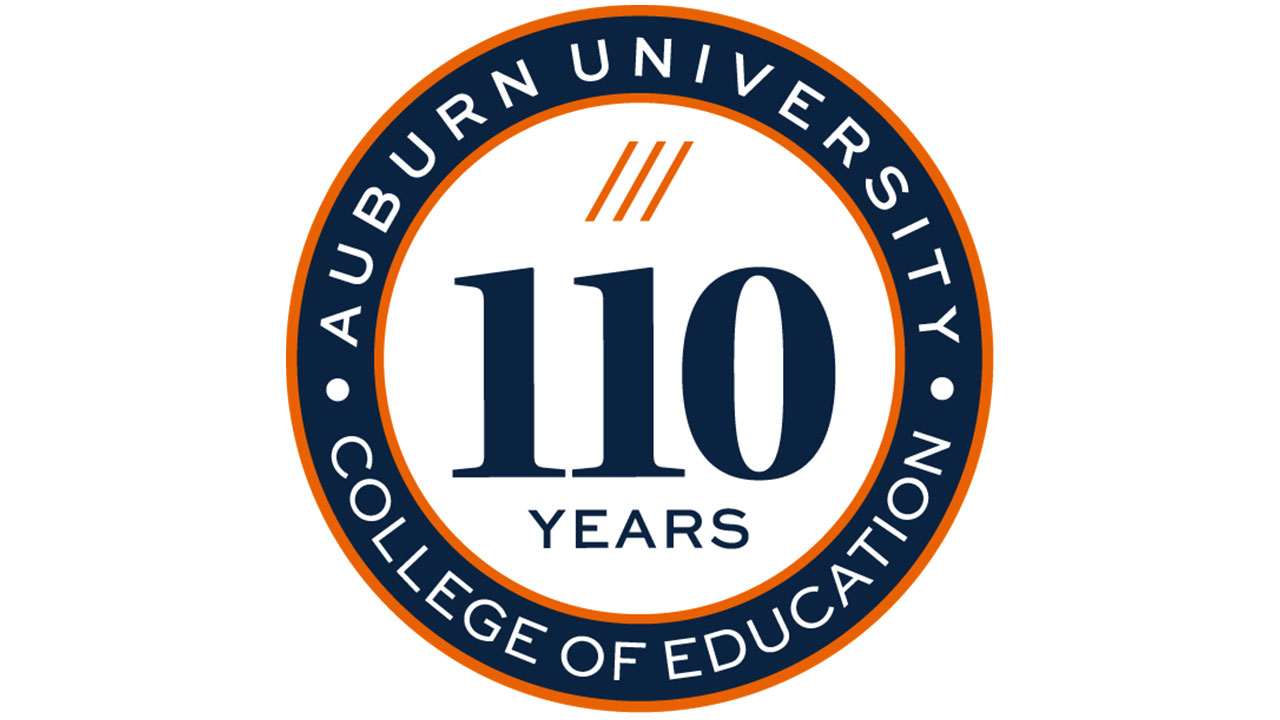content body

Nearly a century and a decade have passed since Auburn University’s College of Education — then known as a Department of Education — first opened for classes on Sept. 8, 1915.
As 2025 begins, the college will celebrate that milestone of time throughout the year, recognizing its 110th anniversary at a very fitting moment in its history as it prepares to move into a new building at the intersection of Samford Avenue and Duncan Drive later this year.
“Throughout its many years, our College of Education has been at the forefront of innovation in meeting society’s education and health challenges, living up to its mission of building better futures for all,” said Jeffrey Fairbrother, dean and Wayne T. Smith Distinguished Professor of Auburn's College of Education. “Since our founding, we have prepared so many generations of educators, administrators, health professionals, counselors, rehabilitation specialists and more, doing our part to transform communities, our nation and our world. Each step of the way, our college has been focused on opening doors of opportunity and improving lives. It’s truly exciting to celebrate all our college has accomplished as we also look to the future of a new building and the great promise it holds.”
The college began in 1915 with Auburn’s Board of Trustees establishing the Department of Education to offer professional courses to teachers. Graduates from the department received a bachelor of science in agricultural education. More than 50 students registered in the first year, and Zubulon Judd headed the new department, later becoming the college’s first dean.
It was in 1918 that the Department of Education became the School of Agricultural Education, following the Smith-Hughes National Vocational Education Act of 1917. The school offered three types of degrees at the time: nonvocational education, agricultural education and liberal arts. By 1920, the School of Agricultural Education became the School of Education. In 1953, the then-school’s doctorate of education program was approved.
Flash forward to 1963, and the college’s Learning Resources Center was established to support the production of educational materials and the use of technological aids in teaching. In 1966, Josetta Matthews received a master’s degree in secondary social science education from the college, becoming the first African-American student to graduate from Auburn University. She would later also become the first African-American student to earn a doctorate from Auburn.
In 1969, the College of Education moved from Thach Hall to a new home — that of a recently constructed Haley Center. Thirteen years later, the Truman Pierce Institute was founded in the college, named after one of the college’s former deans. The institute, a research and outreach unit devoted to studying and improving teaching, learning and leadership, focuses to this day on schools and their communities. Then, in 1985, the School of Education ultimately became known as it is today — the College of Education.
Just before the turn of the century in 1999, the college began offering distance education courses, and by 2013, the college’s Department of Kinesiology became the School of Kinesiology and moved from Beard Eaves Memorial Coliseum into a new building off Wire Road. Six years ago, the college expanded its mission of opening doors to opportunity with the creation of the Education to Accomplish Growth in Life Experiences for Success, or EAGLES, program, a comprehensive transition program for students with intellectual disabilities.
And with the future on the horizon, the college is now preparing to move later this year to a new 167,000-square-foot, three-story building, where classes will begin by summer 2025. The state-of-the-art instructional and research facility will include modern and collaborative classrooms, instructional laboratories, research spaces, up-to-date technology and administrative spaces for faculty and staff.
Today, Auburn’s College of Education offers a plethora of degree options through four units — the Department of Curriculum and Teaching; Department of Educational Foundations, Leadership and Technology; Department of Special Education, Rehabilitation and Counseling; and School of Kinesiology. The college boasts a No. 10 ranking by U.S. News and World Report for online graduate education, and its kinesiology doctoral program is ranked No. 13 in the nation. The college has 96 active sponsored research projects, and it had a fall 2024 enrollment of 1,618 undergraduates and 854 graduates. Nationwide and globally, the college has a vast alumni network of approximately 30,000.
“Our longevity and impact through the decades speak to our ongoing commitment to improving the world through the power of education,” Fairbrother said. “And our vision for the future is one of transformation, focused on the continuous learning needed in a rapidly advancing world, identifying and addressing critical issues related to the education of all people."
History Timeline
Auburn's College of Education has had many great achievements since its founding in 1915.
Launch the timeline



